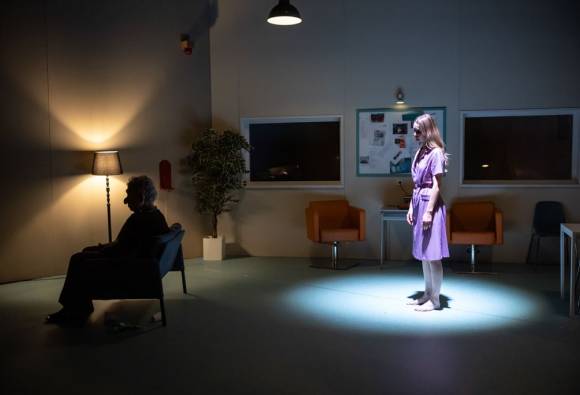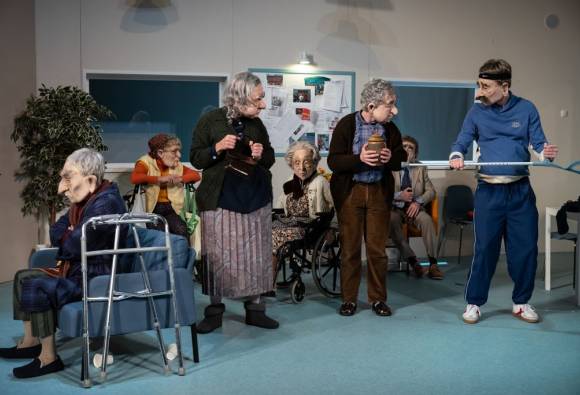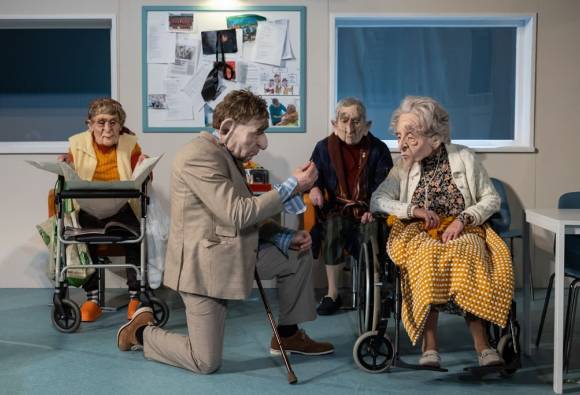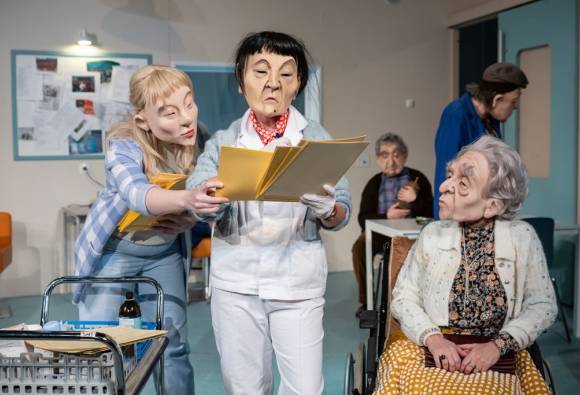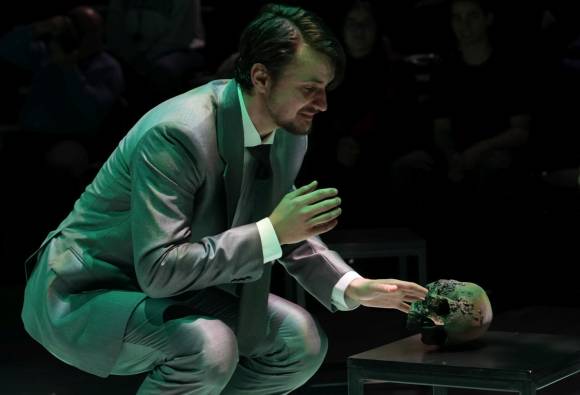
Matteo Spiazzi: Paradise - new date
Production: SLG Celje
Bitter comedy
Running time: The performance lasts approximately 1 hour and 10 minutes
Bitter comedy Paradise, set in a nursing home of a small Slovenian town, portrays the life of its residents. It is based on documentary (memoir) material, which makes it authentic and unsentimental. It introduces the theme of ageing by means of interwoven themes of exclusion, isolation, loneliness, death, (un)fulfilment of life and physical and mental health. Paradise does not aspire to be (just) a documentary testimony, but a contemporary fairy tale celebrating life – with equal opportunities for all. It assembles stories like a mosaic, proceeding from memories that evoke regrets, fears, melancholy in the elderly, and elicit bitter laughter of recognition by the audience. The stories blend into a subtle eulogy of the moment when we glimpse the meaning in the daily drift of often underestimated values, since the play explores the value of life from the only relevant point of view – the end of the timeline, close to death. This point of view, using a delicate prism of bioethics, as it were, touches also upon the individuals’ right to end their suffering and pain.
Paradise is mostly a non-verbal performance, based on a mask play in the manner of Spiazzi's specialisation – commedia dell’arte. The style of commedia dell’arte, employing full masks, is characterised by comic features, albeit spiked with a theme of bitter aftertaste. Spiazzi has already dealt with the theme of ageing: in Minsk, Belarus, he created Family Album, an original project, presenting three generations of a family stuck in a small flat of the elderly grandmother and mother. In Kiev, he paid several visits to a nursing home together with drama students, where they collected the residents’ reminiscences and created a performance called The Belvedere Boarding House. In Paradise, Spiazzi aims to explore the uninhibited draining away of time (life) taken-for-granted, as we spend it rather miserably in our service to the capital on a daily basis, and take notice of all that is worthwhile rather instantaneously, impatiently, distractedly. When was the last time, for example, that you sat down in a comfortable chair and gazed through the window without saying a word?
A modern fairy tale celebrating life – with equal opportunities for all.
Matteo Spiazzi (born in 1987) is an Italian director and theatre pedagogue. He graduated from the Nico Pepe Academy of Dramatic Arts in Udine with a degree in theatre directing, specialising in mask work. He has worked as a director, theatre pedagogue, lecturer, producer, and event organiser in Italy and internationally. He has held lectures and given practical seminars on theatrical masks at the University of Verona, the Central University of Quito in Ecuador, the Art Department of the University of Tartu in Estonia, the National Academy of Dramatic Arts of Belarus in Minsk, the University of Culture of Kiev, as well as at the Theatre Academy DAMU in Prague. Spiazzi is a recipient of many awards and prizes for his work as a director.
Matteo Spiazzi: Paradise - new date
18,00 EUR
15,00 EUR * * EUR for younger than 25 and older than 65, as well as pensioners.
Director Matteo Spiazzi
Dramaturg Tatjana Doma
Set designer Primož Mihevc
Costume designer Dajana Ljubičić
Mask designer and maker Alessandra Faienza
Oblikovalec zvoka Mitja Švener
Oblikovalec svetlobe Gregor Počivalšek
Cast Žan Brelih Hatunić, David Čeh, Maša Grošelj, Lucija Harum, Aljoša Koltak, Rastko Krošl, Urban Kuntarič, Manca Ogorevc, Lučka Počkaj, Tanja Potočnik, Branko Završan
Prodiuction Slovensko ljudsko gledališče Celje

